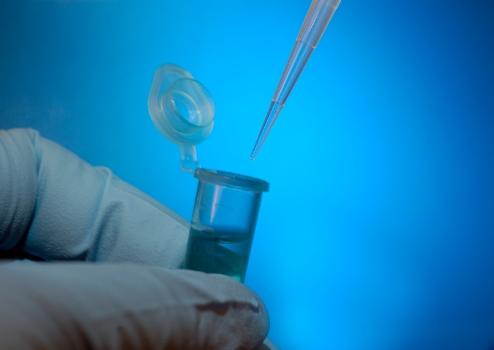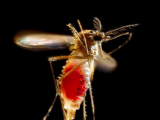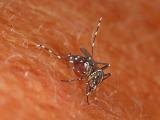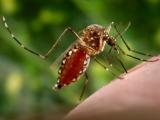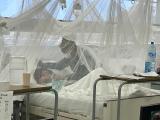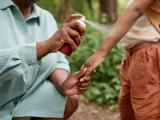An experimental dengue vaccine provided 100% protection to volunteers who were exposed to a live but weakened form of dengue virus in a small clinical trial, surprising the researchers, according to a report published yesterday in Science Translational Medicine and accompanying press releases.
The authors said the study not only shows that the vaccine is promising, but also offers a human challenge approach that could be used to screen other dengue vaccine candidates for efficacy before they are tested in large clinical trials. The approach might also be used to develop a Zika vaccine.
The study was conducted by scientists from the University of Vermont's College of Medicine, the National Institute of Allergy and infectious Diseases (NIAID), and Johns Hopkins University's Bloomberg School of Public Health.
The vaccine, called TV003, was developed mainly by the NIAID. It has already gone through phase 2 clinical trials and is now in a phase 3 trial that was launched last month in Brazil, according to a Johns Hopkins press release. The vaccine is designed to protect against all four dengue virus serotypes—an important feature since a person previously infected with one dengue strain can get seriously ill if later infected with another strain.
Study involved 21 recipients
In the study, 48 adult volunteers were randomly assigned to receive the vaccine or a placebo. Six months later they were exposed to a genetically modified version of a type 2 dengue virus that was isolated in Tonga in 1974 and was known for causing only mild illness, the NIAID said in a statement.
In previous studies, NIAID scientists identified the virus dose that would cause viremia in all those exposed and a rash in most of them.
Forty-one volunteers returned for the exposure part of the trial. All 20 placebo recipients developed viremia, 16 had a mild rash, and 4 had a temporary drop in white blood cell count (neutropenia), while none of the 21 vaccine recipients had viremia or any other sign or symptom, the NIAID said.
"The findings from this trial are very encouraging to those of us who have spent many years working on vaccine candidates to protect against dengue, a disease that is a significant burden in much of the world and is now endemic in Puerto Rico," the NIAID's Stephen Whitehead, PhD, said in the release.
"We were pleasantly surprised to see that this candidate vaccine provided complete protection in everyone who received it," said Anna Durbin, MD, a Johns Hopkins coauthor, in the NIAID statement. "The dengue-2 serotype is considered the relatively weaker component in this, and other, candidate dengue vaccines, so its ability to confer protection from a challenge with dengue-2 virus was encouraging."
Possible Zika application
The Johns Hopkins statement said TV003 could be "the final puzzle piece" in developing an effective dengue vaccine.
It said a three-dose vaccine called Dengvaccia received limited licensure in three countries this year, but trial results suggested that children who were under age 9 when vaccinated faced an increased risk of dengue-related hospitalization. Because of this, researchers were concerned that antibody response alone may not be a good indicator of vaccine effectiveness.
In the NIAID release, Durbin observed that using a challenge virus that causes only mild disease is important since there is no specific treatment for dengue. Also, the challenge virus's ability to cause viremia in a high percentage of exposed placebo recipients is an advantage, she added, because it means that relatively small clinical trials can yield good evidence on a vaccine's effectiveness.
Durbin said the methods used in the study could be the basis for developing a vaccine against the Zika virus, another mosquito-borne virus that is in the same family as dengue, according to Johns Hopkins. Zika is now spreading rapidly in parts of Latin America and the Caribbean.
Whitehead said the results of this trial helped spur the recent decision by officials at Brazil's Butantan Institute to move the TV003 vaccine into a large phase 3 trial.
Kirkpatrick BD, Whitehead SS, Pierce KK, et al. The live attenuated dengue vaccine TV003 elicits complete protection against dengue in a human challenge model. Sci Transl Med 2016 (published online Mar 16) [ Abstract]
See also:
Mar 16 NIAID press release
Mar 16 Johns Hopkins press release
Mar 16 AAAS press release
